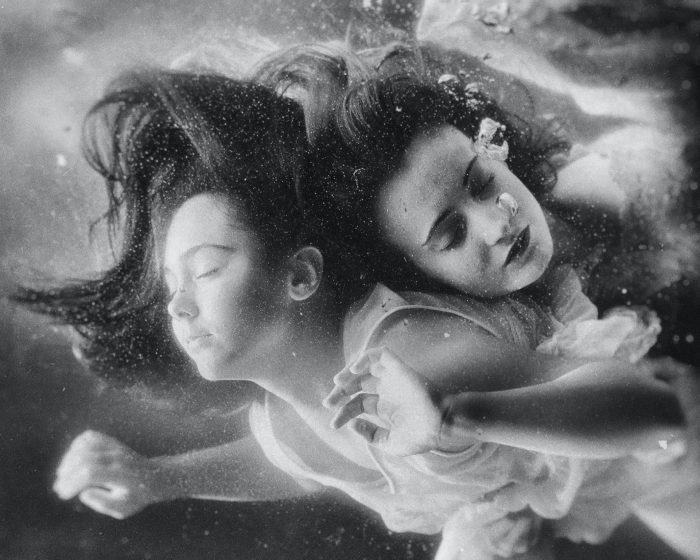It was almost one year ago last spring that I wrote my first article on the subject of death.
In it, I made mention of the fact that it has been one of the earliest of my most primal fears. In fact, this still rings true today, regardless of my belief in a universal force beyond the limits of human comprehension.
I am certain that given the content I’ve written in the recent past, many people might find this perplexing. Truthfully, if that were the case, I couldn’t blame them. After all, I have brushed on the idea that we are more than flesh and bone time and time again, unfurling the knots of our uninspired mindset—and one that is tied to a ruthlessly materialistic worldview that subsequently undervalues all that cannot be measured, calculated, or otherwise explained using logic or any of the five physical senses.
However, there remains a dubious part of me, however benign, that serves to assume the role of devil’s advocate. In addition, despite my belief and fleeting glimpses of self-awareness, I continue to fear the physical process of dying itself. In these moments, I wonder what it feels like when the heart stops pumping and the mind shuts down, completely. Then, I panic as I know myself to be part body and cannot humanly conceive of no longer having one at all.
I think to myself: even though I know I am perceptive to these thoughts and experiences and therefore must be more than the sum of these mechanical parts, I also know that I have a kind of spiritual amnesia and thus do not remember what it felt like before inhabiting this vessel I have always—mistakenly or not—believed myself to be.
I cannot consciously recall a time before I was all that I think I am now, in this form and on this earth, and the thought of an inevitable and impending end to all of that seems foreign to me. Just as I cannot adequately comprehend the idea of a singularity at the center of a black hole where all conceptions of time and space cease to exist altogether, I also cannot imagine what it feels like to return to source—to be the truest self beyond name and form—and to quit identification, entirely, with thought and all other worldly things. Even if that is not who we are, it is nevertheless, all that we can perceive through the senses, and matter itself is both real because it exists and because we can touch it. But when we’re dead, we can no longer perceive any matter.
Sometimes, I have even felt curious about the portal of light experienced and reported by people who claim to have been pronounced clinically dead for several minutes and were then later on revived. More specifically, I have wondered whether a portal ushers in a void.
Can a void be thought of as abject emptiness or as irrepressible fullness? In other words, is emptiness nothing or is it everything? Could it be both? Likely, it is both, because if nothing is all there is, how could we think of that nothing as being empty? It must be full, too—even though, in its totality, it is lacking in structure, which was born from the universe at the time of the Big Bang and was also, over time, man-made.
The question, to me, then becomes: what is and is not real? What, truly, is reality? Moreover, how much a part of this assumed reality do we inhabit?
There is a plethora of questions percolating in my head as I dance in the dark with a seductive, existential curiosity. However, I also know that there is a line between knowing what we feasibly can know and grasping at thin air—and, perhaps, I have crossed over that point. As nearly every spiritual teacher I’ve listened to has said—in so many words—to try to understand the nature of consciousness is to take yourself further away from the very essence of it.
Maybe, part of the evolution of our species blossoms from the radical acceptance of the fact that, perhaps, there is something infinitely greater than us that is too wide for the scope of our vision. Moreover, maybe it is meant to serve as an indirect reminder of who and what we truly are at our core—that we are above and beyond a bundle of cognitive processes by which we define who we are.
In the end, and if we even get that far, we must gracefully surrender to our limitations—as well as to those of the discipline of science, itself—for even that is ever-changing, and ultimately imperfect, however invaluable it has been in countless other respects throughout the span of history and continues to be to this day. Maybe, just maybe, this also is part of what the great masters of our time and before it meant when they said “die” before you die—in which case, the “death,” in question, is strictly an allegorical one.
In the series film, “Samadhi” (2021), Part 3, “The Pathless Path,” there is a quote by Lao Tzu. It reads, “The unnamable is the eternally real. Naming is the origin of all particular things.”
And yet, the vast majority of people on this planet live and breathe as though they’re limited and finite and that, once their time comes, will fundamentally cease to exist. They never seem too curious about anything much beyond the illusion of time and the fickle externalized events surrounding their current life situation. Socrates said, “The unexamined life is not worth living,” and looking around me, I can’t help but wonder whether or not he was right.
Furthermore, as much as we may want to push away death and simply not think about it, it remains an inseparable part of life. Beyond the musings of a hypothetical afterlife, isn’t the time we call the present moment of extreme importance? Moreover, can we afford to be locked in to the confines of a barbed-wire mindset in lieu of the freedom and bliss transcendence might bring?
Another quote I have come to love is also featured in the film, “Samadhi.” It reads, “Let me respectfully remind you: life and death are of supreme importance. Time swiftly passes by and opportunity is lost. Each of us should strive to awaken. Awaken! Take heed! Do not squander your life.”
In a practical sense, we have mastered the art of doing—we work hard, innovate, plan, hypothesize, analyze, build, and even destroy—and all in copious ways. But have we learned to go within, to start at the zero point and go deeper, as though we were a singularity? Have we familiarized ourselves with the wealth that transcends all cycles of birth and death, or of having and losing? The simple answer, of course, is not really. And, to that, I say, what on earth are we waiting for?
For the past year or so, I’ve been volunteering on a crisis line a few times per month and there is one common denominator among the hundreds of strangers I have spoken to so far: they’re all trapped in this story, in this narrative, they call their life. They are haunted by the past and fearful for the future. They’ve lost connection to themselves and to the present moment almost entirely. They also become irritated when their opinions on people and circumstances are not validated by me.
Many express the desire to seek revenge on those who have hurt them—whether real or perceived—and are quick to anger and to nurse an incredibly fragile—albeit, false—sense of self. In addition, no matter how much wealth or success they may have acquired, continue to feel so hopelessly and chronically empty within. No matter what the case may be, they all remind me of the parable of the beggar in Eckhart Tolle’s book, The Power of Now. Here they are sitting on a box filled with gold, but none of them have ever bothered to open it up and really take a look inside.
It both saddens and somewhat alarms me that most people physically expire with their stories and have never delved beyond the mundane—to truly know themselves and let fall away all that isn’t essentially who they are.
Even if they achieved notoriety and possessed substantial wealth, wouldn’t all of those things be utilized more favourably if the individual expanded his or her level of consciousness? What is all the money in the world worth if your spiritual bank is void and your heart and head are throbbing with anger that, over enough time, could poison your cells and alter your biochemistry, causing you to become more susceptible to actual disease?
In the Bible, in Matthew 19:24, Jesus said, “It is easier for a camel to go through the eye of a needle than for a rich person to enter the kingdom.” While I do not consider myself to be a religious person in any way, shape, or form, I do believe that Christ was more than likely a profound spiritual advisor of his time—similar to Alan Watts, the Buddha, and Dr. Joe Dispenza.
What I believe he may have meant by such a statement is that all material things are a causation of the fall and therefore, a byproduct of original sin. Furthermore, because original sin is innately intertwined with the human condition on planet earth, we are programmed to want more, which can ultimately divorce us from a higher consciousness, and therefore, from the heaven that is latent within us all. Excessive materialism blinds us to the heaven we were meant to cultivate within and subsequently bring forth into the world—for ourselves and for others.
If this pandemic has taught us anything, hasn’t it driven home the fact that life is precious and can change in an instant? Why, then, are we still clinging to old paradigms and outdated systems of thought? Why are we continuing to place value in empty pursuits driven by greed? Do we want to spend more years of our lives doing what doesn’t light a fire in us? Do we want to keep on identifying with a collection of beliefs and stories about who we are that, whether we know it or not, hold us back and make us miserable?
Of course, letting go of all these things means dying—and death, in any form—is threatening to the ego and all the various structures we’ve built.
However, if we’re all going to die, we might as well start now, in the purest sense of the word, before our time is literally up.
~


 Share on bsky
Share on bsky





Read 5 comments and reply